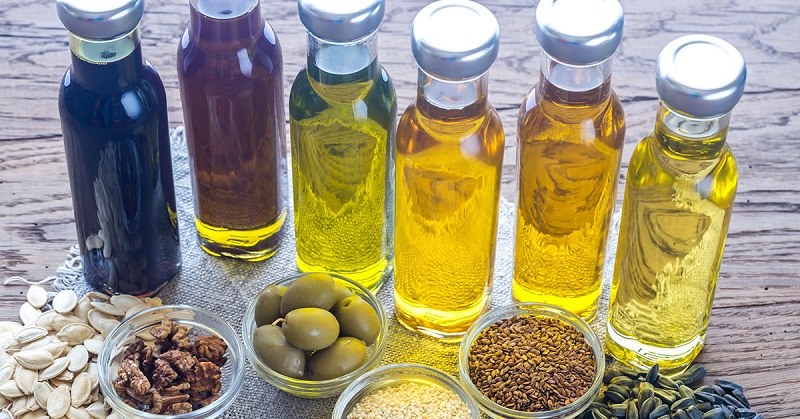In today’s health-conscious world, choosing the right cooking oil has become a critical decision. The market offers a wide array of options, including physically refined oil and cold-pressed oil. While both serve the purpose of cooking, they differ significantly in terms of their production methods, nutritional content, and impact on health. In this article, we will delve into the differences between physically refined oil and cold-pressed oil, helping you make an informed choice for your culinary needs.
Understanding Refined Oil
What is Refined Oil?
Refined oil, also known as physically refined oil, undergoes an intensive process that involves refining, bleaching, and deodorizing. This process is designed to remove impurities, odors, and flavors, resulting in a neutral and versatile cooking oil. Common sources of refined oils include soybean, canola, and sunflower seeds.
The Refining Process
Physically refined oil is produced by subjecting the crude oil to high temperatures and chemical treatments. This process effectively removes free fatty acids, contaminants, and unwanted flavors. The end product is a clear, colorless, and odorless oil, making it suitable for various culinary applications.
Cold Pressed Oil Explained
What is Cold Pressed Oil?
Cold-pressed oil, on the other hand, is extracted using a mechanical pressing technique, which involves minimal heat. This method preserves the natural flavors and nutrients of the oil’s source material. Common varieties include cold-pressed olive oil, coconut oil, and almond oil.
The Cold Pressing Process
In cold pressing, the oilseeds or nuts are mechanically crushed and pressed at temperatures below 122°F (50°C). This gentle extraction process helps retain the oil’s natural color, aroma, and nutritional value, making it a popular choice among health-conscious consumers.
Nutritional Differences
While both refined and cold-pressed oils are commonly used in cooking, their nutritional profiles differ significantly.
Refined Oil Nutrition
Refined oils are stripped of most of their natural nutrients during the refining process. While they still provide essential fats and calories, they lack the vitamins, antioxidants, and other beneficial compounds found in their unrefined counterparts.
Nutritional Value of Cold Pressed Oil
Cold-pressed oils retain a higher nutritional value due to the gentle extraction process. They contain antioxidants, vitamins, and essential fatty acids, which can contribute to a healthier diet.
Health Benefits
Health Benefits of Refined Oil
Refined oils offer a longer shelf life, higher smoke point, and a neutral flavor profile, making them suitable for high-heat cooking. However, their nutritional benefits are limited compared to cold-pressed oils.
Health Benefits of Cold Pressed Oil
Cold-pressed oils are known for their natural goodness. They are rich in antioxidants and essential nutrients that can support heart health, boost the immune system, and provide various other health benefits.
Flavor and Aroma
The choice between refined and cold-pressed oils often boils down to personal preference. Refined oils are neutral in flavor, allowing the other ingredients in your dish to shine. Cold-pressed oils, on the other hand, offer a distinct flavor and aroma that can enhance the overall taste of your dishes.
Processing and Production Methods
As discussed earlier, physically refined oil undergoes a rigorous process involving heat and chemicals, while cold-pressed oil is extracted mechanically at lower temperatures. This fundamental difference in production methods affects the final product’s characteristics.
Shelf Life
Refined oils tend to have a longer shelf life due to the removal of impurities that can cause rancidity. Cold-pressed oils have a shorter shelf life because they retain more natural compounds that can degrade over time.
Smoke Point
Refined oils have a higher smoke point, making them suitable for frying and high-heat cooking. Cold-pressed oils, with their lower smoke points, are better suited for drizzling, dressings, and low-heat cooking.
Price and Availability
Refined oils are widely available and typically more affordable than cold-pressed oils, which are considered premium products due to their distinct production methods and higher nutritional value.
Common Uses
Both refined and cold-pressed oils have their specific culinary applications. Refined oils are preferred for deep frying and baking, while cold-pressed oils are cherished for their unique flavors in salad dressings and low-heat cooking.
Environmental Impact
The production of refined oils often involves chemical solvents and high energy consumption, contributing to a larger environmental footprint. Cold-pressed oils, with their natural extraction methods, are generally considered more eco-friendly.
Choosing Between the Two
The choice between physically refined oil and cold-pressed oil ultimately depends on your cooking needs and dietary preferences. If you prioritize a longer shelf life, higher smoke point, and affordability, refined oil may be your go-to option. On the other hand, if you seek natural flavor, nutritional benefits, and a smaller environmental impact, cold-pressed oil is the way to go.
Conclusion
In the world of cooking oils, understanding the differences between physically refined oil and cold-pressed oil is essential for making informed choices. Your choice will impact the flavor of your dishes, their nutritional value, and even the environment. Whether you opt for the neutral and versatile refined oil or the flavorful and nutrient-rich cold-pressed oil, both have their merits. So, choose wisely and enjoy the culinary journey.
FAQs
-
Is cold-pressed oil healthier than refined oil? Cold-pressed oil is considered healthier due to its higher nutritional value and minimal processing.
-
Can I use cold-pressed oil for deep frying? Cold-pressed oils have lower smoke points, so they are not suitable for deep frying.
-
Do cold-pressed oils have a longer shelf life than refined oils? No, cold-pressed oils typically have a shorter shelf life.
-
Are cold-pressed oils more expensive than refined oils? Yes, cold-pressed oils are generally pricier due to their unique production methods and higher nutritional value.
-
Which oil is better for making salad dressings? Cold-pressed oils are excellent for salad dressings due to their distinct flavors and aromas.

